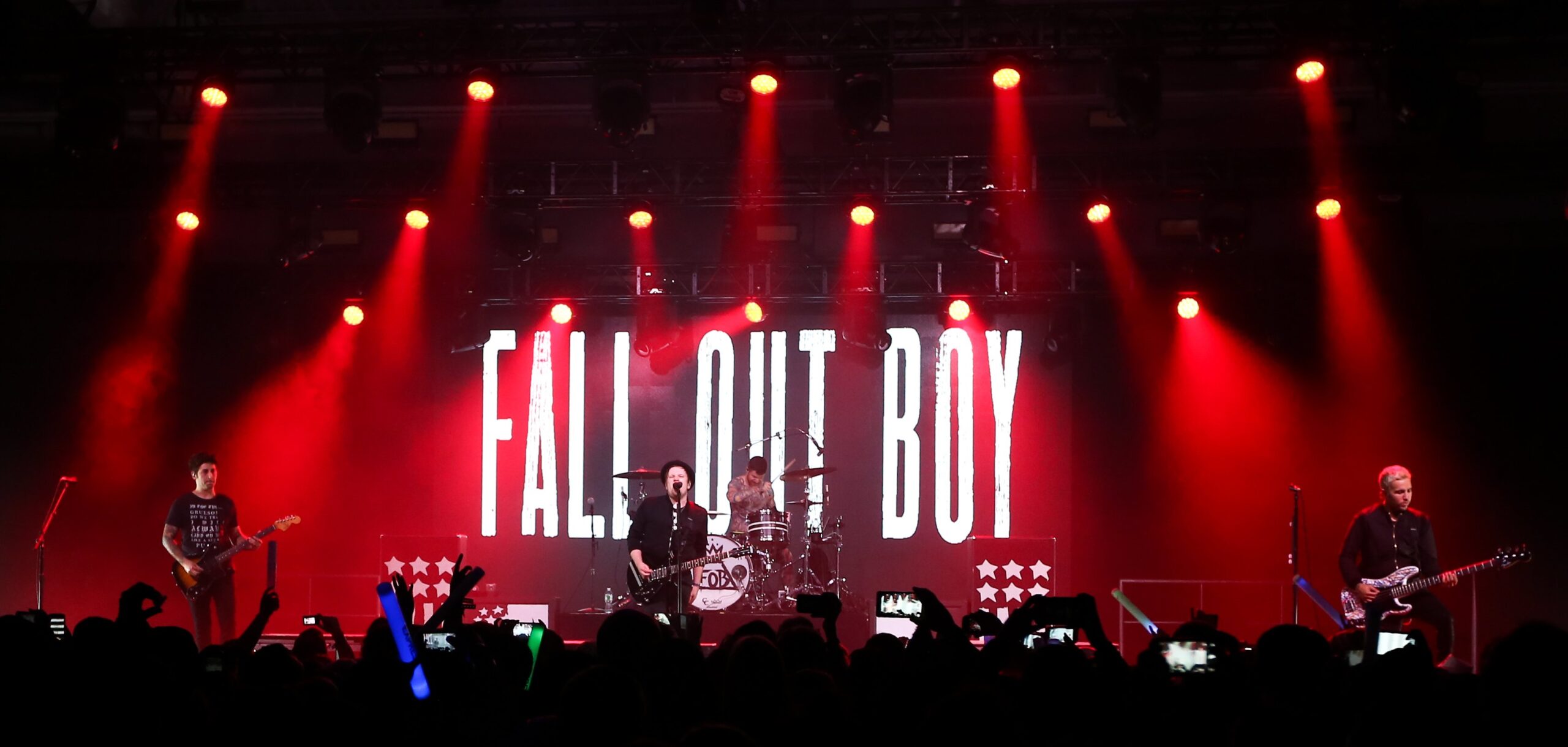Arguably no band is more synonymous with the mid-2000s pop-punk boom than Fall Out Boy.
Having infiltrated mainstream radio with “Sugar, We’re Goin’ Down” in 2005, the Chicago heroes’ early albums epitomized unrequited love and suburban angst with poetic grace. But perhaps thanks to the emo genre’s habit of whitewashing, many of even the most diehard Fall Out Boy fans have been uninformed about one of the group’s preceding projects: an antiracist hardcore punk band called Racetraitor.
Before joining Fall Out Boy in 2003, Andy Hurley was recruited by Racetraitor—whose members were all much older than him at the time—to play drums. Formed by vocalist Mani Mostofi, bassist Brent Decker, and guitarists Karl Hlavinka and Daniel Binaei, Racetraitor were considered one of the most controversial groups of the ’90s due to their flagrant stances against not just outward white nationalism, but also deeper institutionalized racism. Their lyrics were disarming and challenged their listeners to confront their biases—an especially daring choice for a rock band at the time. “You don’t own him / Teeth in this corpse / Builds a dying monument,” go the opening lines of Racetraitor’s debut album, Burn the Idol of the White Messiah. “Innocent and black… Dragged by your face!” Even the band’s name was “a reference to using one’s social and economic privilege to create a more egalitarian world.”
Decker left Racetraitor, making way for Pete Wentz to fill in on bass. Another possible result of Rock’s white favoritism, many people have glossed over the fact that Wentz is biracial: His mother’s family hails from Jamaica, and a Google image search turns up countless photos of his natural textured hair. Racetraitor dissolved in 1999 before reuniting in 2016, but in the meantime, the music of Fall Out Boy bore traces of Black culture.
Fall Out Boy followed the success of their breakout sophomore album, From Under the Cork Tree, with a single called “This Ain’t a Scene, It’s an Arms Race” that explored the dark sides of their newfound fame. Frontman Patrick Stump, who’s long cited classic soul music as a major influence on his writing, called the song “the funkiest thing [they’ve] ever done.” Its music video—aside from featuring a Black gospel choir—touched on the band’s foray into hip-hop territory; their next album, Infinity on High, featured a cameo from Jay-Z. Elsewhere on the record, R&B legend Babyface performed mandolin on “Thnks fr th Mmrs” and organ on “I’m Like a Lawyer with the Way I’m Always Trying to Get You Off (Me & You).”
Fall Out Boy – This Ain’t A Scene, It’s An Arms Race (Official Music Video)www.youtube.com
2008 saw Fall Out Boy delve deeper into the funk. That March, they shared a cover of Michael Jackson’s “Beat It,” before releasing their fourth studio album, Folie à Deux. Guitarist Joe Trohman cited Prince as an inspiration to his playing style on the record, while critics heralded Strump as an “unlikely blue-eyed-soul star,” likening his vocals to blues virtuoso John Lee Hooper. Lil Wayne and Pharrell Williams were among the featured artists on Folie à Deux, and Fall Out Boy even tapped rapper 50 Cent as a supporting act on their following tour, commencing a recurring pattern of playing shows alongside Black rappers. Each song on their 2015 remix album, Make America Psycho Again (its title an obvious jab at Donald Trump), included guest vocals from a Black artist.
While Wentz has remained mostly quiet about his biracial identity—possibly to avoid unnecessary scrutiny for passing as white—Fall Out Boy’s support for the Black community has been evident for years. In the midst of the Black Lives Matter protests following the murder of George Floyd, the band released one of the best statements posted yet: “When you discover rot deep within your house you don’t just paint over it,” they wrote on social media. “You dismantle it and rebuild a better house.” They pledged to donate $100,000 this summer to different organizations and bail funds.
When looking at rock music as a whole—but specifically emo and pop-punk—Black people have been historically erased. Since long before the formation of Fall Out Boy, its members have proven that including them in the narrative isn’t difficult. Black Lives Matter, and the music you love, wouldn’t exist without them.
Related Articles Around the Web













